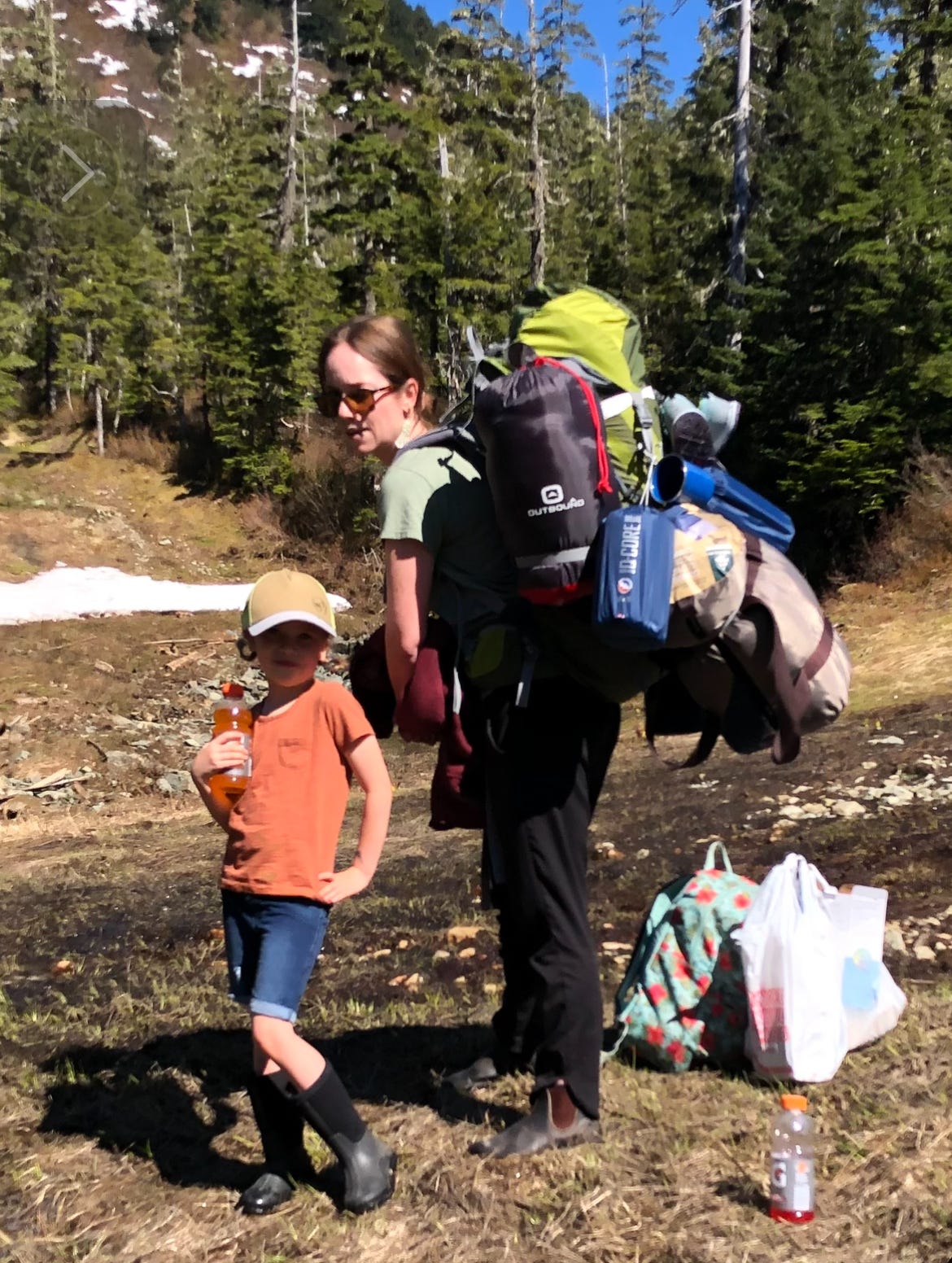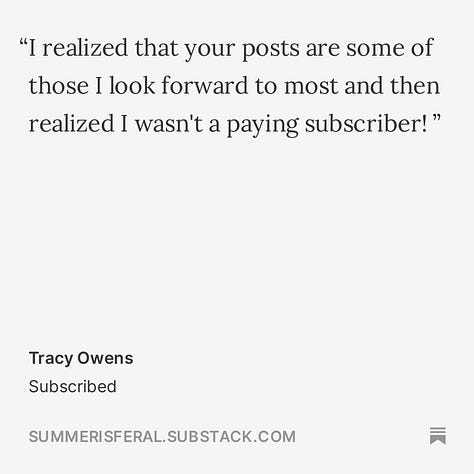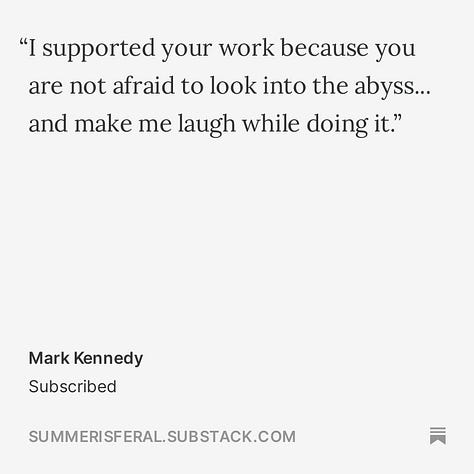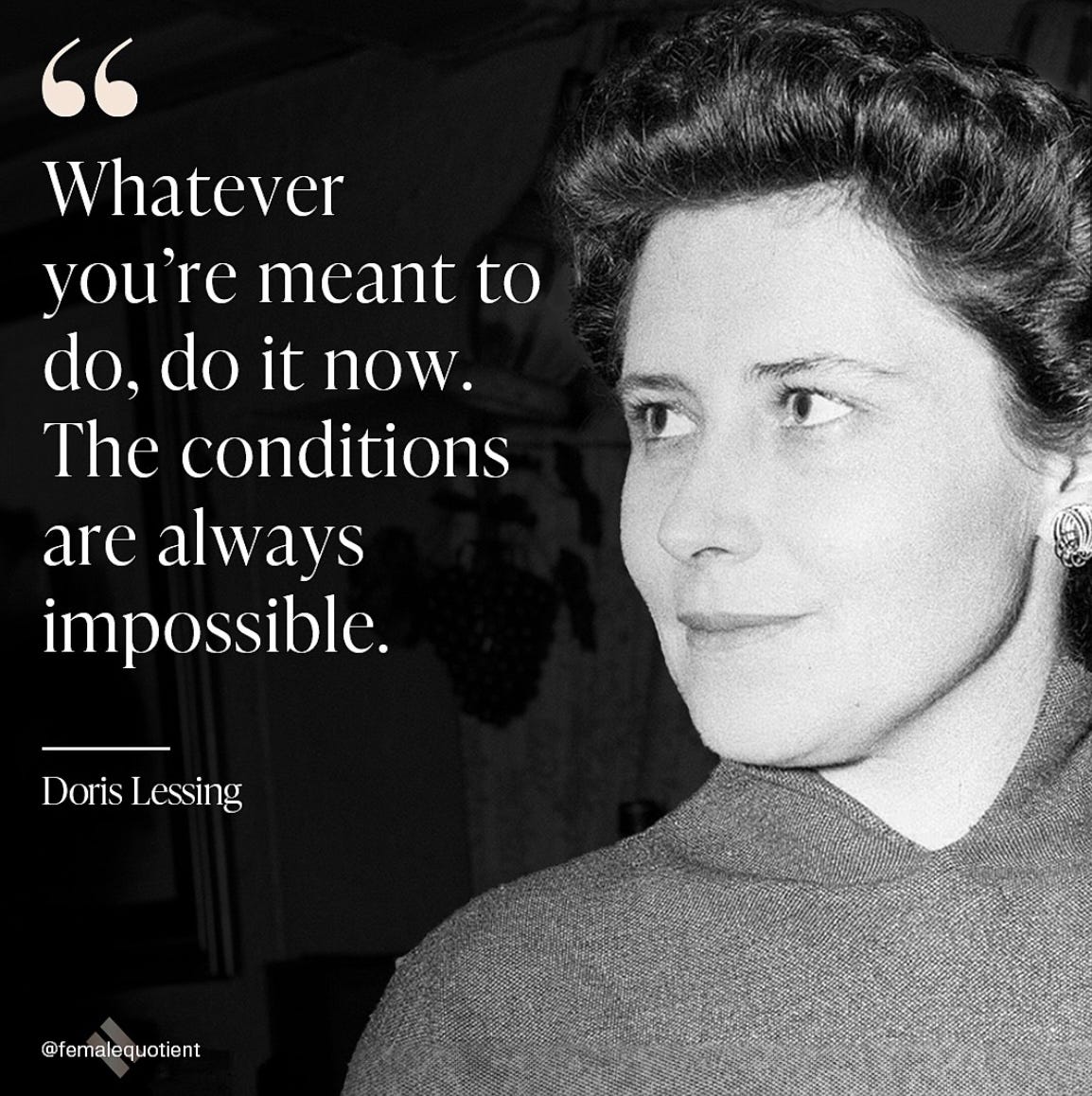Moms don't want sainthood, we want compensation
How to show mommas you truly value their work

Dear Reader,
I just finished reading an advanced copy of the memoir Mettlework. In this stunning debut, author Jessica Johnson relives through letters her mother’s experiences raising small children in mining camps in Montana and Alaska. Through the letters, Jessica learns about the linked misogyny and disconnection that characterized her childhood world and the echoes she sees in her own life now as a young mother.
Mettlework is about how culture and social systems teach us what holds value. Hard, tangible things like gold and silver are valuable, and Jessica and her family often made homes around these things. More abstract things like caring for others and making a home comfortable were things Jessica’s mom did—what Jessica also does for her children—and came secondary.
Reading this book as we approach Mother’s Day felt very resonant as I reflected on my contributions and how society determines their value. In a capitalist society, of course, the ability of contributions to generate capital determines their worth.
Spoiler: there is no capital in mothering.
When I became a mom, I relinquished my earning potential and all the years I spent getting my secondary degrees to learn which essential oils cure croup, and how to get nutrition down the throats of picky children, and how to scrub Sharpie out of floors. Despite that I hold more formal education and earning potential than my husband, my career took a backseat to the needs of my high-needs children.
I gave up professional opportunities to care for my kids. Instead of building a career, motherhood earned me zero capital. Rather, it has cost me hundreds of thousands in lost wages.
As a result of prioritizing my children’s care, I don’t have a retirement. I don’t have my own nest egg put away. I rely on my husband financially, which is problematic in itself.
Because I am the default parent and a woman, I end up doing, and I have counted, about seven hours of unpaid parenting and housework a day. In contrast, my husband, who works full time and sometimes overtime at a physical job, probably does about one on average.
THE AVERAGE MOM IS DOING ⅔ OF THE UNPAID LABOR AT HOME WHILE EARNING JUST 58 CENTS FOR EVERY DOLLAR EARNED BY DADS. — Moms F1rst
According to a report from the National Women's Law Center, more than 2 million women left the U.S. workforce in 2020 due to the COVID-19 pandemic. A December 2020 report from the Bureau of Labor Statistics indicated that women left the workforce at four times the rate of men.
I was one of those mothers who gave up one of my teaching jobs to care for my five- and seven-year-old. When a teaching position became available, I turned it down so I could be available to help my autistic daughter at school. Sometimes, I must drop what I’m doing and come at short notice. I stopped subbing partway through the year when it became clear I couldn’t arrive at school on time due to my daughter’s periodic meltdowns. This may be why mothers of children with ASD earn 56% less than mothers of neurotypical children.
This meme has been circulating recently, but what many don’t know is that Doris Lessing abandoned her toddlers to move to the UK and write a novel. Lessing believed that she could not pursue her creative work while serving as a mother. I both admire and despise her.
She wrote:
“There is nothing more boring for an intelligent woman than to spend endless amounts of time with small children. I felt I wasn’t the best person to bring them up. I would have ended up an alcoholic or a frustrated intellectual like my mother.”
I look back on my family history, which is full of bright, creative women. Some of them were housewives who turned to alcoholism. They had middle-class, upper-middle-class husbands who worked and provided for them and kept mistresses. You can do that sort of thing when you have capital.
I think of these women every time I use my precious writing time talking to doctors, arranging appointments, following up with teacher emails, searching for summer camps, paying bills, ordering new gear for growing bodies, etc. Most days, I’m lucky if I can eke out a minute to respond to fellow writers with feedback.
I’ve been resisting counting all the unpaid hours I work a week for fear it will make me want to walk down the road, stick out my thumb, and get into the next car like Doris Lessing once did. A report by Oxfam found that in the United States, the unpaid work women performed in 2019 would have generated 1.5 trillion dollars. Eve Rodsky, author of Fair Play, writes, “Society views women's time as infinite, like sand, and it views men's time as finite, like diamonds.”
Is it so terrible to ask to get PAID for any of this invisible work?
It’s not such a far-fetched idea anymore. Norway is currently considering legislation that would pay parents to stay at home. Romania and Latvia offer 746 and 740 days of paid maternity leave, respectively.
In 2021, fifty women, including several prominent celebrity moms, asked the Biden Administration to create a task force dedicated to implementing a “Marshall Plan for Moms.” The plan would include a stimulus check for mothers and pass policies addressing parental leave, affordable childcare, and pay equity. Led by Reshma Saujani, the founder and CEO of Girls Who Code, the letter was signed by Eva Longoria, Amy Schumer, Julianne Moore, Charlize Theron, Gabrielle Union, and more.
The truth is I could never do what Doris Lessing did. Becoming a mom filled the hole I always felt growing up that had led me to binge eat, smoke, and drink to feel fulfilled. After having kids, I naturally stopped doing all those things. Giving my kids the secure attachment I didn’t have by choosing to stay at home when they were young helped heal the part of me that often felt unloved.
Doris Lessing’s letters echo her grief and yearning for the babies she abandoned. Eventually, she had a child and found a balance between motherhood and creative work. We all strive for this: to manifest our true, glorious selves inside our nests and out in the world.
I don’t want to outsource my parenting to someone else so I can be more of a participant in this capitalist society. In this town, I wouldn’t be able to anyway because the waiting list for childcare is years long. I want to parent my children, but I also want financial independence to feel like an independent, sovereign human.
An investment in motherhood is an investment in families and communities. Studies have shown that investments in mothers are more likely to return to the family and communities than when investing in men. Financially supporting mothers so they can care for their children will only grow a better, more loving, and safer society.
Thank you to the mothers, the mothers of mothers, and especially my mother.
Thank you to those who signed up for a paid subscription. If you value independent writing and want to show this momma some love on Momma’s Day, please consider signing up for a paid subscription. 💝
Gunalchéesh,
Summer
Many thanks to the generosity of these new paid subscribers!









In a sane world, mothers would be compensated financially. It would be an amazing way to distribute wealth more equitably and recognize and value the unpaid work mothers do.
Happy Mother’s Day Summer! 💐